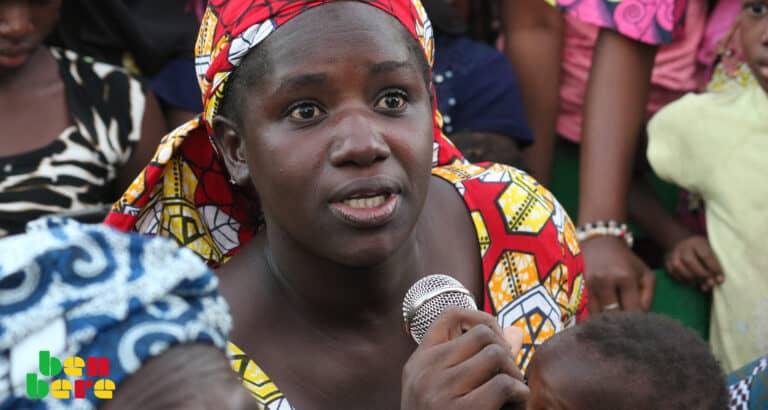Version française ici – If we want a different Mali, we need to start from now with a very inclusive decision making and governing scheme.
National Committee for the Salvation of the People (CNSP) seems to be the beacon that majority of Malians have been waiting for during the past dark years that saw the country shrink in the hands of terrorism, insecurity, nepotism, and corruption. Malians are holding their breath waiting for whatever the outcome of the concertation will be and whatever the new leaders and the other parties involved will come up with. Advocate for women’s rights and gender equality are no exception. We too believe this is a chance for women to be represented and also have a say in the country’s fate.
It won’t be a pity but a huge mistake if CNSP-or anyone who will lead the country-fails or neglects including women in the different decision-making process or prevents them from holding leadership positions. Women’s involvement is important for the transition to work.
Looking beyond “they are mothers” speeches and focus on the human capital that women constitute
It is important to remind reasons why women’s involvement is crucial. First, as capable as men, citizens and Malian, women should be endowed with same entitlement to govern the country. This is important to remind because everyone, including advocate for women’s rights, justify women’s inclusion in these terms “women are mothers, they are mothers of leaders, of terrorists”. They are listened to because of this social role as well. This is dangerous, as it is embedded in social construction of women’s motherly role and overlook those women who are not mothers.
We should not focus on the motherly role, because it is not men’s fatherly role which allows them to lead, take decision and hold power rather it is the privileges patriarchy and phallocracy bestowed on them. Thus, our focus should be in ensuring that women have the same privileges and participate because they have the rights, the capacity and also are citizens; not because they are mothers.
Women’ perspectives and role is a unique resource we should make the best of
Second, we must ensure women are present and fully participate, because when you are not there your standpoint will be missed and forgotten. In fact, women have a unique perspective which no matter a male’s experience and expertise he will not understand. Especially because of social and gender norms which burdens women and gives them the lenses to look at and see oppression and lack of decision-making power differently from men.
Thus, women are the only one who can speak for themselves and ensure that equality, and other issues, such as GBV which women they face, is part of the transition and beyond. Further considering how patriarchal our country is and how its legislations disfavor women, their involvement can make a change and bring Mali closer to achieving equality and social justice.
The importance of including women of all walk of life and with different experience
As much as women’s inclusion is important, so is the choice of women who should be involved. Hence, when I advocate for women’s inclusion, I am talking about not the elites alone-they have their role- but all Malian women’s to be represented. Thus, the young generation with the potential we have and the unique experience we gained due to insecurity, conflict, rise of GBV, including feminicide, new technologies and educational opportunities should be heard and included in building a stronger nation starting from the transition.
Another group of women whose voice should be included are the women in the rural areas. Who more than those women know the horrendous impacts of lack of quality health care, maternal and infant mortality, lack of drinkable water and foremost lack of economic empowerment opportunities? Therein, their voice-which a privileged and educated urban woman will never be able to represent- should be heard and their concerns included through their participation.
Moreover, I believe this time offers a great opportunity to get women’s voices included in the matter of the peace process, considering that even the peace agreement and its negotiations failed to include them. For years, our country is trying to gain a semblance of peace and security. It is important to include women, especially those who have been affected by conflicts and insecurity. This is important, because we have women in Kati, the widows of soldiers who are struggling to feed their family but are generally just involved in protests not more.
On the other hand, we have women who have lost their husbands, family members, and all their belongings-some are refugees– in the North and Center of the country. These two categories of women affected by the conflict should be represented, because who more than them know conflict and its dreadful impacts. This is a unique opportunity to involve their voices and ensure that there are measures which are taken to alleviate their pains and loss. Especially we can learn lessons from them and address conflict related issues, justice and reconciliation. In sum, if we want a different Mali, we need to start from now with a very inclusive decision making and governing scheme.

